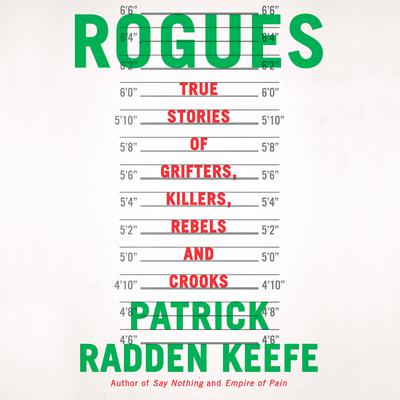

In The Jefferson Bottles, he investigates the tall tales of a German vintage wine collector, who was accused of forging the provenance of his stock. One moment you find Keefe hitching a ride on the back of a scooter in Hanoi with Bourdain, the next he is reporting on the manhunt for Joaquín Guzmán, also known as El Chapo, leader of the infamous Sinaloa drug cartel in Mexico. In these 12 pieces, he tracks down unscrupulous hedge-fund managers, ruthless drug lords, shadowy bomb technicians, dodgy whistleblowers and, in what is perhaps the collection’s only weak link, even follows the late celebrity chef and TV presenter Anthony Bourdain to Vietnam. That Keefe specialises in unmasking criminal secrets and digging up shady cross-continental networks was evident from his previous two books, Say Nothing and Empire of Pain, which reckoned respectively with the history of violence in Northern Ireland and the role of the Sackler family, owners of the company that manufactures Ox圜ontin, in triggering an opioid epidemic across the US.

The need to make sense of Bishop’s unravelling becomes a moral imperative for Keefe If the majority of your daily reading is on a device, chances are you don’t read much poetry or historical fiction. What explains the compulsive popularity of these 10,000-word “true stories”? I suspect that their appeal has something to do again with the preponderance of screens, which seem empirically suited to a more contemporaneous immersion. Now it’s just a click away, forever.”Ĭharles Dickens may have been the most-read novelist of his time, but the monthly instalments of A Tale of Two Cities weren’t available to as many people mere seconds after publication, as, say, the latest viral article by Ronan Farrow. In the preface to Rogues, a collection of his greatest hits since 2007, Keefe writes that despite the internet’s overall bleak effect on the circulation of print media, it also enabled his career on a century-old magazine: “A big magazine feature used to be as evanescent as the cherry blossoms: here today, gone next week. Every year or so at the New Yorker, he comes up with the eminently bingeable, religiously fact-checked and seductively globetrotting piece of narrative reportage that has become practically its own genre in the past two decades. P atrick Radden Keefe is among the hallowed practitioners of American long-form journalism.


 0 kommentar(er)
0 kommentar(er)
